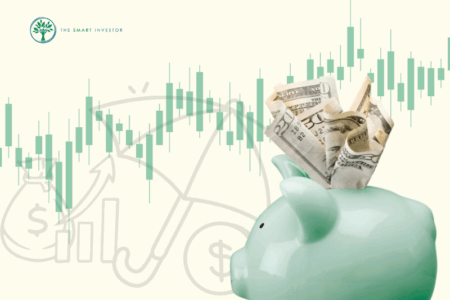The era of high interest rates may be coming to an end soon.
Recall that the US Federal Reserve (“Fed”) increased interest rates at the fastest pace ever back in 2022 to 2023.
With the US labour market showing signs of weakness, the Fed may be poised to cut interest rates later this year to stimulate the economy.
Here are four sectors that stand to benefit should interest rates start their decline.
REITs
The REIT sector has taken it on the chin since interest rates shot up two years ago.
REITs rely heavily on debt to finance their operations and acquisitions.
The increase in interest rates has crimped their distributable income as finance costs soared.
When interest rates fall, it will provide some relief to REITs that are refinancing their loans.
Mapletree Pan Asia Commercial Trust (SGX: N2IU) saw its finance costs rise 9.8% year on year to S$59.4 million for the first quarter of fiscal 2025 even as net property income inched up just 0.1% year on year.
For OUE REIT (SGX: TS0U), its finance costs jumped by 18.5% year on year for the first half of 2024 while its net property income increased by just 1.6% year on year.
These REITs should enjoy some respite if interest rates decline as they can see their finance costs moderate and stabilise.
However, there may be a lag before REITs see any relief in their finance costs as loans take time to refinance, while those with a large portion of their debt on fixed rates may need time to lock in lower interest rates.
Consumer discretionary
Should interest rates fall, more people will have higher disposable income as they need to pay less interest on their loans and mortgages.
Consumer sentiment will also improve as people now have more money to spend.
Lower interest rates allow businesses to expand their operations and grow faster, helping to stimulate economic growth leading to a wealth effect.
When people feel richer, they also tend to spend more on luxury goods and their “wants”.
Businesses such as The Hour Glass (SGX: AGS), Ralph Lauren (NYSE: RL), and Prada (HKSE: 1913) will benefit as demand for luxury goods increases.
Consumer staples
Having more disposable income will also have a spillover effect on the consumer staples sector.
People are now able to afford more necessities and will not cut back as much as they used to once interest rates are lowered.
This trend will benefit supermarket operator Sheng Siong (SGX: OV8) and multi-format retailer DFI Retail Group (SGX: D01).
Companies that sell daily consumables and food products such as Mondelez (NASDAQ: MDLZ), Kimberly-Clark (NYSE: KMB), Procter & Gamble (NYSE: PG), and Kraft Heinz (NASDAQ: KHC) are also beneficiaries.
Back home, companies such as Delfi (SGX: P34) and Fraser & Neave (SGX: F99) should also benefit from the decline in interest rates as it will stimulate demand for food and beverages such as chocolates, snacks, and fresh milk.
Technology
The technology sector is another promising area to look at for investment ideas.
Generative artificial intelligence (AI) has made a big splash with many technology players racing to come up with their latest models to infuse into their products and services.
Technology companies, therefore, need to spend significant sums of money on research and development to ensure they stay competitive.
Capital expenditures will also stay high as companies obtain the latest hardware and design their software via in-house teams.
Should interest rates fall, these companies will benefit as they will pay lower finance costs on any debt that they take up.
Nvidia (NASDAQ: NVDA), the market leader in graphics processing units (GPUs), has listed a comprehensive range of fields that it is currently researching.
Some of these include 3D deep learning, applied research, computer vision, and robotics.
The GPU designer is also planning to ship out its new Blackwell chip by 2025, though reports have come in stating that there will be delays in shipments because of a design flaw.
Meta Platforms (NASDAQ: META), Alphabet (NASDAQ: GOOGL) and Microsoft (NASDAQ: MSFT) are relying on the new Blackwell chip to power their latest applications and advance their generative AI models.
Investors can dig deeper into some of these names to find out their strengths and how they can continue to grow their business and market share.
Meanwhile, iPhone behemoth Apple (NASDAQ: AAPL) should also see some uplift in demand for its products if interest rates fall, both from a capital expenditure angle and consumer demand perspective.
The best gift a responsible parent can give their child is a secure, comfortable financial future. And we found that dividend investing is one of the easiest and effortless methods to do it. Our latest FREE report reveals how you can do it, plus the 3 SGX stocks you can buy today to start future-proofing your child’s financial future. Click HERE to grab a copy of the guide.
Disclosure: Royston Yang owns shares of Delfi, Apple, Meta Platforms, and Alphabet.





